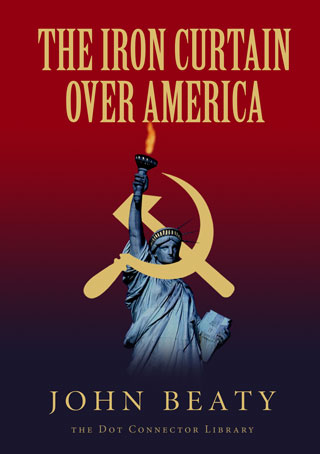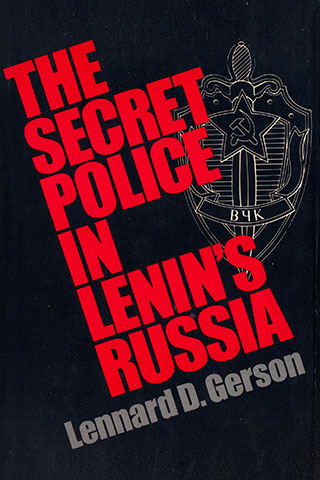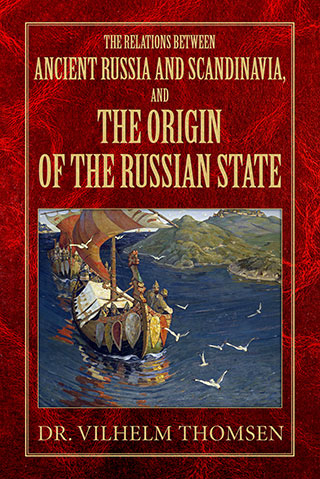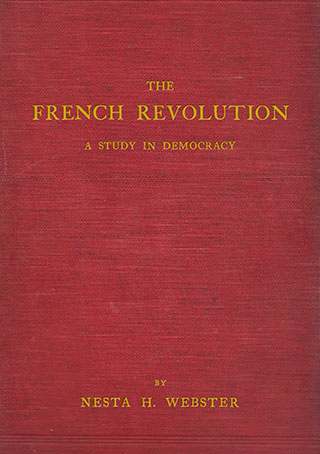It’s the Poets Who Destroy the Old Order
“[Poetry] should strike the Reader as a wording of his own highest thoughts, and appear almost as a Remembrance…” (John Keats)
“And then your life, the life you are telling me about, becomes a short story that had force only because it was viewed from a particular slant, your slant, which you found within the one language you speak…” (The Magician Awakes)
“The greatest sum is no sum at all. It isn’t the addition of facts or numbers. It’s the willingness, for a little while at first, to suspend judgment and consider there are mythic qualities in existence that come from us…myths greater than machines…and in order to give voice to the myths we need to go where poets go. We need to go there badly. For our own sake, we have to put that peculiar precision that splits a tiny particle into smaller and smaller pieces on the shelf for a little while…” (The Magician Awakes)
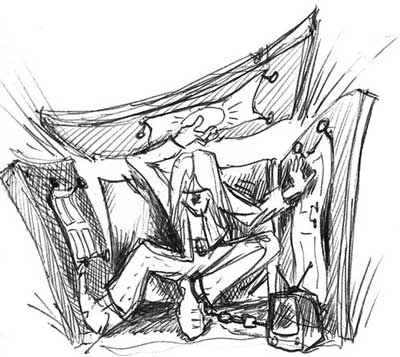 Call this an article of faith.
Call this an article of faith.
These days, people are rightly concerned about spying, snooping, tracking, hacking, profiling. The battle of privacy versus intrusion. The systems that look at other systems.
And at the same time, the people who are spying and tracking are trying to hide their own secrets. They’re doing double duty. Just off the top of your head, what would you think of a person who was doing everything he could to assemble the particulars of your life while he was concealing the details of his?
And suppose his wealth and access were, say, a few hundred billion times greater than yours?
What kind of language is involved in all this computer spying and counter-spying and protection? You don’t have to be an expert to see it’s the language of the machine. It’s certainly elegant in many respects, and it’s delineated in fine, very fine, and extra-fine shavings of detail. The Trojan Horse is now algorithmic.
The people who enter and work in that universe are committed to a meticulous process of move and counter-move. Programs above other programs. Look-ins which are processing the strategies of other look-ins.
I’m interested in all this because the past, present, and future of language is involved. A civilization, to a significant extent, rides on what happens to words—not as detached entities, but as the expression of what we invent ourselves to be.
“It does not need that a poem should be long. Every word was once a poem.” (Ralph Waldo Emerson)
These aren’t minor matters. Imagine what victory in a war means when the survivors, on both sides, emerge with battered minds, bodies, and souls. The experience of war makes them see the future in different terms.
If freedom is placed in a modern context of privacy vs. no-privacy, the war is going to embroil us in a language of the machine. We’re going to touch that language, rub up against it in one way or another, use it, oppose some piece of it with another piece of it.
Children are going to grow up learning it and swimming in it and its effects.
In that way, the creeks and streams and rivers and oceans of machine interaction are going to power human thinking.
“…it is difficult to get the news from poems yet men die miserably every day for lack of what is found there…” (William Carlos Williams)
Here’s a strange example. People will take a paragraph out of an author’s novel, extract every key word, and track down their possible references—and then try to reconstitute the paragraph as if it were lines of secret code. They’ll rebuild it by welding together those references.
Because mathematics consists of symbol-manipulation, and the symbols have very specific and tight meanings, there is a growing tendency to assume all language works this way.
But of course, it doesn’t.
Poetry doesn’t. So the poet, who was already on the far edge of credibility, is reintroduced as a symbol maker, a mathematician slipping a coded revolution into the matrix.
That might make an entertaining science fiction novel, but it has nothing to do with the energy or intent of a poem.
Poets may be unearthing hidden treasure, but the spoils of their war are everything mathematics isn’t. Every great poet destroys the old order. It’s for the reader to discover and see that, if he can.
The old order, which is always and forever fascism dressed up as “greatest good,” keeps resurfacing in the same pool of decay.
It’s the poets who know how to climb down into the muck and also fly above it, waking the dead parts of the psyche.
Whoever rules these dead, and how, with what tricks and subterfuge, the royal purpose remains constant: the rejection of poetic consciousness that can fully restore the human being to the life that is his.
Poetry does more than reorder reality. It reconstitutes it from the beginning, from the first line on the page of the future.
Society, as it has been shaped, is the sum of illusions that prevent the individual from hearing the first line, even as it echoes in his mind.
This repression is a cooperative exchange in the marketplace. The individual agrees to deafen himself, in order to placate inner forces he fears. Forces that ultimately don’t exist. The whole operation is a chimera.
It’s the poets who destroy the old order.
“Time let me hail and climb, Golden in the heydays of his eyes. And honoured among wagons, I was prince of the apple towns, And once below a time I lordly had the trees and leaves Trail with daisies and barley Down the rivers of the windfall light.”
“Let us go then, you and I, When the evening is spread out against the sky Like a patient etherized upon a table…”
“These are the times that try men’s souls. The summer soldier and the sunshine patriot will, in this crisis…”
These aren’t instructions or code or habits to be performed, or political improvements. They’re grand intrusions on the commonplace labyrinth. They come in at an angle and explode..
As the consciousness of these things dwindles in the era of the machine and all its complications, as the matrix expands to include language-calculations designed to describe what the individual is and isn’t, a sea of geometry forms the illusion of progress.
Caught in nests of such symbolic relation, we wait, “till human voices wake us and we drown.”
The drowning comes because the voices are speaking and singing in a key that is one small mathematical preoccupation in the infinite spectrum of imagination.
To the extent the poet is merely taken to be crazy, doom is settling like a shroud around our shoulders.
“…the willingness to give the response to the heroic…gets weaker and weaker in every democracy, as time goes on. Then men turn against the heroic appeal, with a sort of venom. They will only listen to the call of mediocrity wielding the insentient bullying power of mediocrity: which is evil.” (DH Lawrence)
But poets always come. They see doom and they use it as fuel for a new fire that ends one epoch and begins another. Who hears them? That is always the open question. We are already living in a new time, if we would recognize it.
“Poetry is the mother tongue of the human race.” (Johann Georg Hamann)
“[Poetry:] Thoughts that breathe, and words that burn.” (Thomas Gray)
Imagine there were a million new and unknown languages waiting to be discovered. These tongues wouldn’t make things simpler. They wouldn’t make machines run more smoothly. They would wake us up to new sensations, feelings, exaltations. They would lead us into worlds that had remained in the shadows because we had no way to express our perception of them. They would light up whole geographies of our consciousness that had been dormant. Every compromise with reality would be exposed as a blatant enormous lie.
Every “thought-machine” would crumble. The absurdity of building bigger and bigger organizations as the grand solution to conflict would reveal itself so clearly, even android-humans would see it and wake up from their trance.
The dim apprehension of what is called “paranormal” would blow up and become part of every-day experience. But most of all, our aesthetic sense would expand in every direction, and we would be able to see how rock-bottom consensus reality is merely a fragment of material for making poetry.
Here’s an excerpt from my unfinished manuscript, The Magician Awakes:
“You sit there and tell me about your life, but after a while it occurs to me you’re talking in a blind language. You’re moving above other words you don’t give voice to. There’s another language running in your head, a language you haven’t found yet. It’s there, but you don’t want to look at it.
“You vaguely think, from time to time, it might be in Nature. You might find it there. But Nature is just one part of that expression. If the existence of Nature is so clear to you, consider that there are thousands of other Natures. And each one has a language that unlocks it and spreads it out in a different space and time.
“Would you rather pull back in and settle on the words you use every day? Would you rather become an expert in those words, a king of those words, a ruler in that small place? Is that the beginning and end of what you want and where you’re going? Is that all the human race is capable of?
“Because if it is, then we can end this discussion and all discussions. We can please ourselves with what we have. We can dodge and duck. We can inject ourselves with that ‘satisfaction drug’ and say there’s nothing else to do.
“But suppose these thousands of unknown languages, which no people on earth speak, are sitting like gigantic clouds and then moving slowly through our minds. Suppose each one of those languages can wake us up to new KINDS of experience—experience we perhaps once had but lost.
“And then your life, the life you are telling me about, becomes a short story that had force only because it was viewed from a particular slant, your slant, which you found within the one language you speak. Do you see?
“You’re battling within that one language and you’re finding your story in it. You’ve achieved something. I’m not asking you to throw it away by the side of the road. I’m suggesting that this same life can be told from thousands of angles in other languages, and those tongues are much different, much wider, and through them you see a far bigger life…and you can’t then avoid it, you can’t go back, you don’t want to avoid it…”
The author of two explosive collections, THE MATRIX REVEALED and EXIT FROM THE MATRIX, Jon Rappoport was a candidate for a US Congressional seat in the 29th District of California. Nominated for a Pulitzer Prize, he has worked as an investigative reporter for 30 years, writing articles on politics, medicine, and health for CBS Healthwatch, LA Weekly, Spin Magazine, Stern, and other newspapers and magazines in the US and Europe. Jon has delivered lectures and seminars on global politics, health, logic, and creative power to audiences around the world. You can sign up for his free emails at www.nomorefakenews.com
Digital discoveries
- Migliori Casino Online
- Casino Non AAMS
- Siti Casino
- Sites De Paris Sportifs Belgique
- Tous Les Sites De Paris Sportifs Belgique
- Meilleur Casino En Ligne Belgique
- Casino En Ligne Belgique Bonus
- I Migliori Casino Online
- Non Aams Casino
- Scommesse Italia App
- Migliori Casino Online Esteri
- Paris Sportif Crypto Sans Kyc
- Site De Paris Sportif
- Sweet Bonanza Avis
- Paris Sportif Ufc
- オンラインカジノ 出金早い
- Casino Live En Ligne Français
- Site De Paris Sportifs
- Meilleurs Nouveaux Casinos En Ligne
- Casino En Ligne Français
- Casino En Ligne
- Casino Retrait Instantané
- Casino En Ligne Fiable
- Meilleur Casino En Ligne 2026
- Casino En Ligne Retrait Immédiat
- Casino Français En Ligne
- Casino Italia Non Aams
- Casino Con Free Spin Senza Deposito
- Siti Di Scommesse Non Aams
- Migliore Casino Non Aams
- Casino Online Non Aams 2026
- 토토사이트 모음
- Top 10 Trang Cá độ Bóng đá
- Casino En Ligne
- Casino En Ligne France
- Casino En Ligne Argent Réel
- Casino En Ligne Retrait Immédiat 2026
- Nouveau Casino En Ligne 2026
- Casino Online Stranieri
